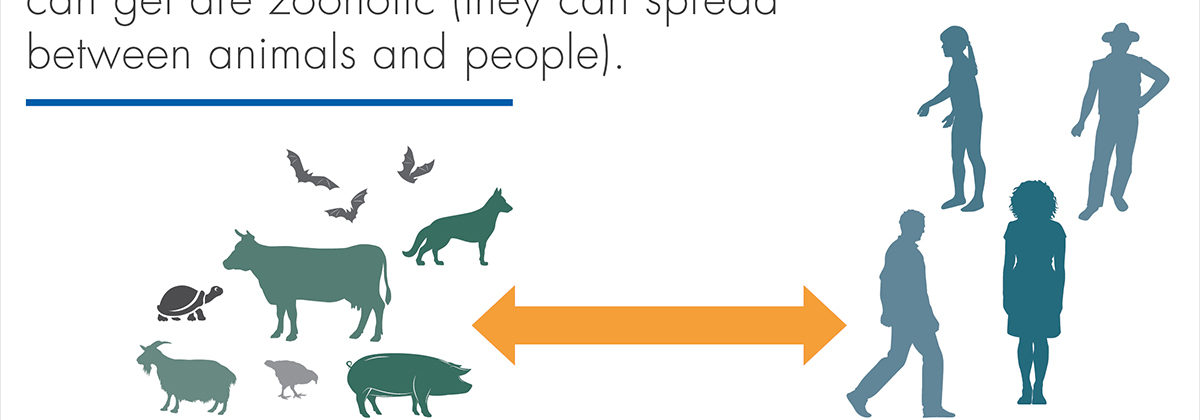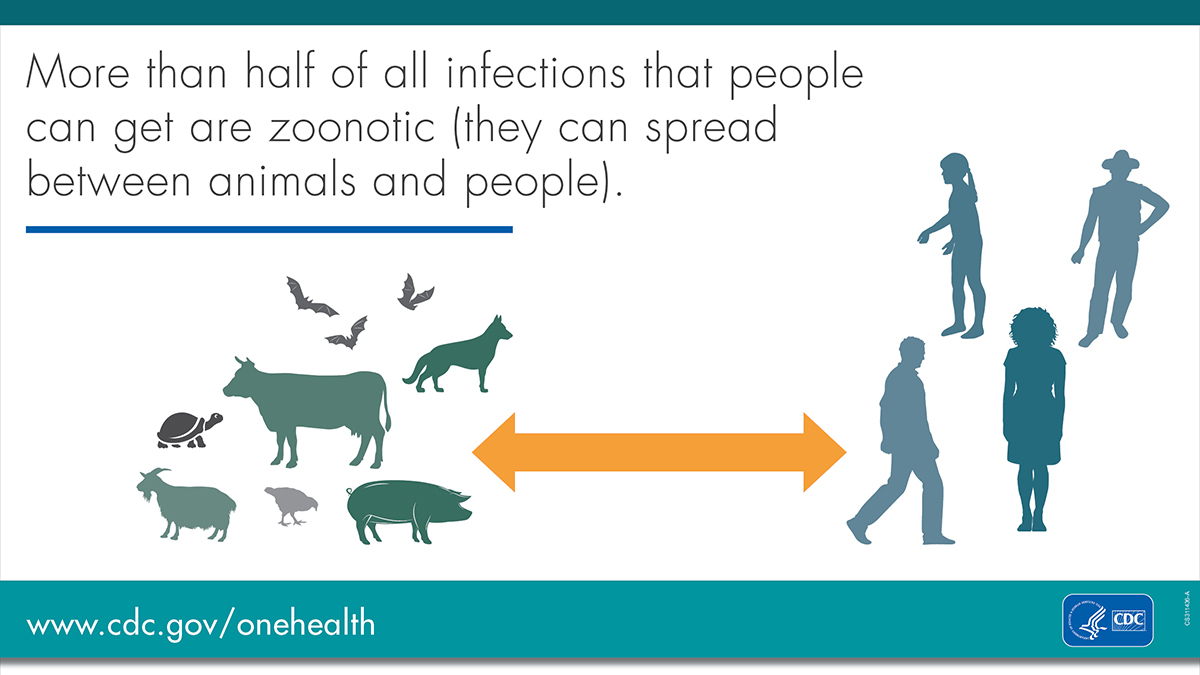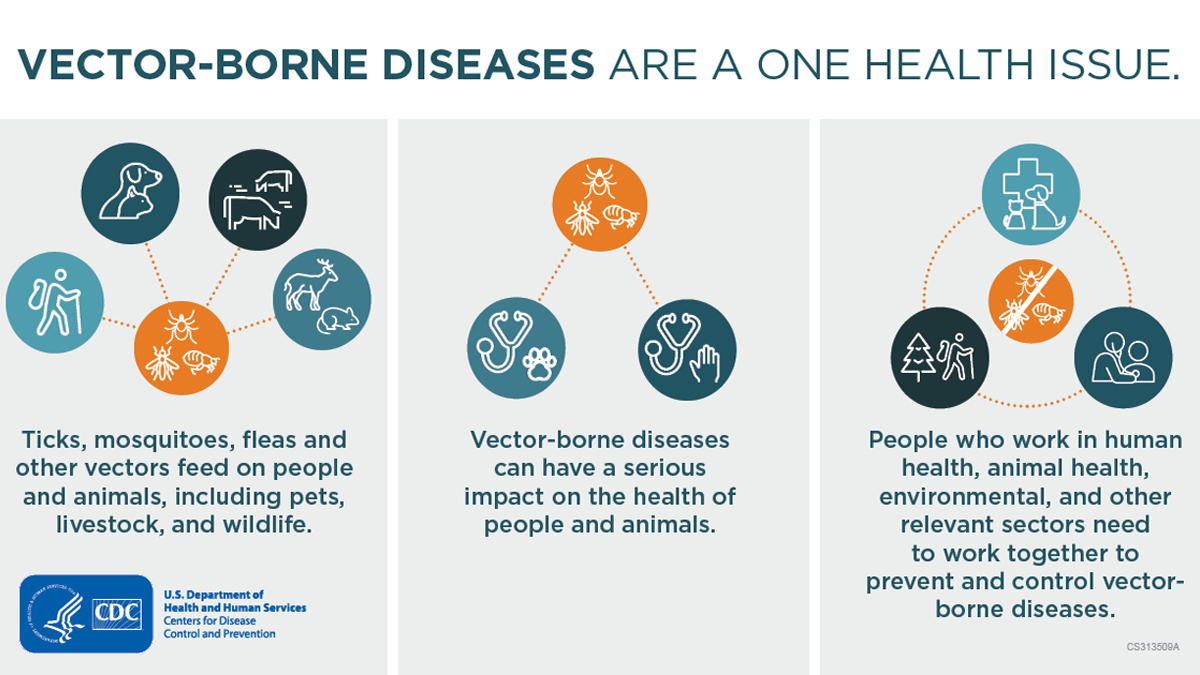One Health Awareness Month in January 2021 is different from any year before. A large portion of the public who had never heard the terms “zoonotic disease” or “spillover event” now have profound personal investment in One Health education and solutions. As a clinical laboratory that specializes in vector-borne zoonotic pathogens like Bartonella and Lyme Borrelia species, how do we contribute and help meet this new demand for more information?
What is One Health?
The concept of One Health recognizes that the health of humans, animals and the environment is intertwined. The World Organization for Animal Health reports that at least 60% of pathogens that can affect humans are “zoonotic,” that is, they are shared with humans. Some of the highest-impact pathogens of the last century are zoonotic diseases, including HIV which came from primates, H1N1 influenza which came from pigs, and COVID-19 which likely came from bats via an intermediary “amplifier species,” a species in which the pathogen replicated before humans were exposed. The point where these pathogens transfer to humans are called “spillover events.”
One way to prevent spillover events is by preserving intact natural habitats for animals. Not only are animals in these natural habitats less likely to interact with humans, but research indicates that the types of animals that flourish there are least likely to transfer pathogens to humans.
The One Health Commission is a source of information and continuing education about One Health topics. Located in Research Triangle Park, North Carolina, the mission of the organization is to connect one health workers, create opportunities for collaboration, and educate the public.
We thank the One Health Commission for bringing our attention to One Health Lessons, a set of educational resources on the One Health topics of COVID-19, ticks and mosquitoes, water and food. These lessons can be accessed directly or used by teachers to create flexible lesson plans suitable for ages 6 to adult. The lessons are available in 12 languages.
Find Out More
Because One Health touches so many different areas of human health, animal health and ecology, there is information about One Health tucked into a huge variety of professions and organizations. And if your organization has anything to do with these topics, you can add One Health information!
This information can often be identified by the keywords “one health” and “zoonotic”. Local universities and educational centers may have courses on the topic. The US FDA website contains a page on One Health that emphasizes comparative medicine, looking at medical issues that are similar in humans and animals to find new solutions that benefit both. The page directs the reader back to our Research Triangle Park neighbor, the One Health Commission.
The CDC is another source of One Health information. Their website contains examples of “One Health in Action”, and they host monthly ZOHU (Zoonotic and One Health Updates) calls each month to educate researchers, healthcare providers and veterinarians on zoonotic disease threats, antimicrobial resistance and more.
What Does the Future Look Like?
There will likely be much more information about One Health in the future as preventing pandemics becomes more urgent. One Health has already worked to prevent pandemics. For example, a bird flu called H5N1 HPAI arose in West Africa in 2016, but joint efforts between animal and human health workers across more than three countries prevented a pandemic.
However, the risk of a future pandemic continues. In addition to COVID-19, 2020 saw an outbreak of H5N6 bird flu (which does not easily infect humans but kills poultry) in the Philippines and outbreaks of H5N1 and H8N1 bird flu strains (also strains that do not infect humans easily) in India that have continued into 2021. Controlling these outbreaks reduces the risk of strains developing that can infect humans. This is what One Health is: prioritizing the preservation of animal health and the environment in order to protect people, because they are all linked.
References
World Organisation for Animal Health. (2015). Animal health a multifaceted challenge. https://www.oie.int/fileadmin/Home/eng/Media_Center/docs/pdf/Key_Documents/ANIMAL-HEALTH-EN-FINAL.pdf
One Health Commission website. Onehealthcommission.org
Thomson, D. (2020). One Health lessons. Onehealthlessons.com
ReliefWeb. (2020). One Health approach in West and Central Africa. https://reliefweb.int/report/world/one-health-approach-west-and-central-africa
Channel News Asia. (2020, March 16). Philippines detects bird flu outbreak in quail farm. https://www.channelnewsasia.com/news/asia/philippines-detects-bird-flu-outbreak-in-quail-farm-h5n6-12542450
News18. (2021, January 11). Can bird flu transmit to humans? All you need to know about its spread in India. https://www.news18.com/news/india/can-bird-flu-transmit-to-humans-all-you-need-to-know-about-its-spread-in-india-3270896.html




